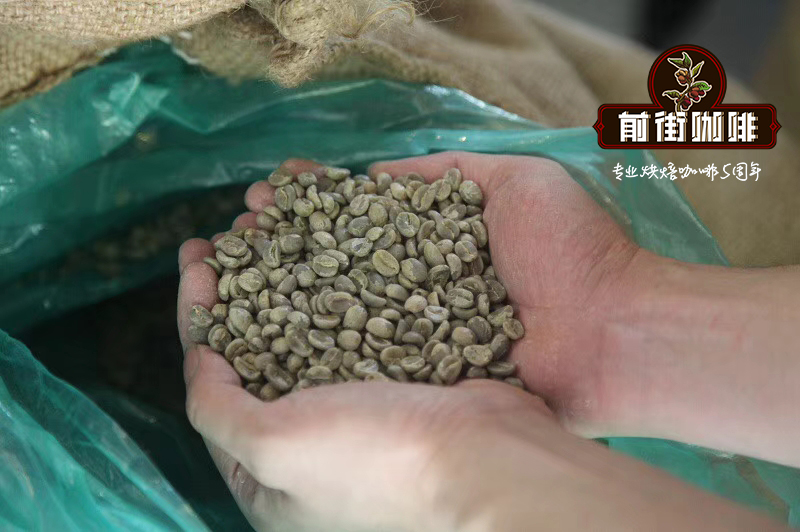Starbucks Colombia Coffee Theme Classroom Story Introduction Colombia Coffee Brand Juandez

Professional coffee knowledge exchange more coffee bean information please follow the coffee workshop (Wechat official account cafe_style)
Colombia is the world's largest coffee producer and exporter, but Starbucks and Nespresso's two major global coffee chains have recently focused their expansion on a country with a population of nearly 50 million, hoping to break into the indicator market in Latin America.
■ Starbucks is now selling Colombia its own coffee.
Starbucks, the world's largest coffee chain, officially opened its first store in Colombia in mid-July, announcing that Starbucks has finally entered the coffee home market 43 years after Colombia bought raw beans. The first branch is located at 93 Star Garden, the best-known community in downtown Bogota. It aims to have 50 stores in Colombia over the next five years, and boasts that 100 percent of the coffee sold there comes from beans from the country's origin.
Nespresso plans to open a coffee shop in Colombia later this year.
Be optimistic about the purchasing power of the local people
Colombia has a total population of about 47 million. Together, the two largest coffee chains in the world prefer the hometown of coffee as the main market for expansion. The main consideration is its strong economic performance. Colombia's economic growth rate in the first quarter of this year is as high as 6.4%. The boom represents an increase in public spending power. Monica Acosta, Columbia regional marketing director of Nestle, which owns the Nespresso brand, said: "the good economic momentum and the increase in the number of Colombians traveling abroad and foreign tourists to the country means that Colombians are increasingly aware of the world's famous coffee brands."
Like Brazil and Vietnam, Colombia, which exports coffee, produced a total of 11.5 million bags (about 60 kilograms each) of coffee beans last year, most of which are for export.
At the same time, Colombia's domestic demand is growing steadily, with coffee consumption growing 2.7 percent from 2010 to 2013, according to the Coffee drinking Association (Drink Coffee), which is co-founded by coffee farmers and coffee retail brands.
Ana Maria Sierra, director of the Coffee drinking Association, said the increase in coffee consumption was mainly driven by the middle class. Colombian high-end Arabica coffee beans are famous all over the world. Starbucks, as the world's largest coffee chain brand, naturally has a huge demand for raw beans. Starbucks CEO Howard Schultz claims that Starbucks is the world's largest buyer of Colombian Arabica coffee beans.
The local brand status of Colombian coffee brand is unshakable.
Although Starbucks and Nespresso know this is a very good opportunity to enter Colombia, the two major international companies also understand that the market leading position of the local Colombian coffee brand Juan Valdez is difficult to shake.
Juandiz is a brand run by the Colombian Coffee Farmers' Association. Due to its own production and marketing, the brand is highly supported by Colombians and has nearly 200 stores across the country.
Knowing that Colombian consumers are highly loyal to their own coffee beans, Starbucks and Nespresso are working together to sell products using local ingredients as much as possible. Starbucks has announced that 100% of local coffee beans will be used, while Nespresso says it will use at least 80%. Shaw even pointed out that Starbucks' entry into Colombia could also benefit Juan Diz. "Starbucks will co-exist with Juan Diz," he said. "according to past experience, as soon as we enter a new market, we will make the cake bigger. Competitors can also enjoy a better business environment."
Experts pointed out that after the entry of international well-known brands, Juan Dizi must face the impact of a decline in market share. Eduardo Sarmiento, director of the Economic Research Center of Colombia's Julio Institute of Electronic Engineering, said: "after Starbucks and Nespresso come into Colombia, Juan Diz's market share will decline sooner or later."
Important Notice :
前街咖啡 FrontStreet Coffee has moved to new addredd:
FrontStreet Coffee Address: 315,Donghua East Road,GuangZhou
Tel:020 38364473
- Prev

Columbia Coffee theme classroom the characteristics of Colombian Salento coffee beans and how to brew them
Professional coffee knowledge exchange more coffee bean information Please follow the coffee workshop (Wechat official account cafe_style) in order to drink the best Colombian coffee brand coffee in the world, it has been a long way. First take the bus to the Armenian city (Armenia) from the bus transfer station on the west side of the Colombian capital Bogot, and pass by nearly
- Next

Starbucks via Columbia Coffee is good? Juan Dizka, the first brand of Colombian coffee.
Professional coffee knowledge exchange more coffee bean information please follow the coffee workshop (Wechat official account cafe_style) friends just returned from Central America D.C., brought Latin America's first brand Colombian coffee brand ── Juan Valdez Juandez coffee for us to taste. Speaking of Juan Valdez Juandez Coffee, it is said to be the first brand of coffee in Latin America. Coffee
Related
- Detailed explanation of Jadeite planting Land in Panamanian Jadeite Manor introduction to the grading system of Jadeite competitive bidding, Red bid, Green bid and Rose Summer
- Story of Coffee planting in Brenka region of Costa Rica Stonehenge Manor anaerobic heavy honey treatment of flavor mouth
- What's on the barrel of Blue Mountain Coffee beans?
- Can American coffee also pull flowers? How to use hot American style to pull out a good-looking pattern?
- Can you make a cold extract with coffee beans? What is the right proportion for cold-extracted coffee formula?
- Indonesian PWN Gold Mandrine Coffee Origin Features Flavor How to Chong? Mandolin coffee is American.
- A brief introduction to the flavor characteristics of Brazilian yellow bourbon coffee beans
- What is the effect of different water quality on the flavor of cold-extracted coffee? What kind of water is best for brewing coffee?
- Why do you think of Rose Summer whenever you mention Panamanian coffee?
- Introduction to the characteristics of authentic blue mountain coffee bean producing areas? What is the CIB Coffee Authority in Jamaica?

